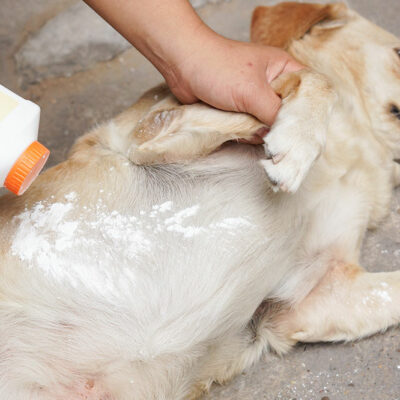
Top 4 Treatments for Dog Food Allergies
If this is your first time caring for a young pup, you know how much effort it takes to make sure they receive proper nutrition and healthcare. Many puppies are often intolerant and allergic to certain foods and find it difficult to obtain the necessary nutrients from their food. Moreover, some of these food allergies could be quite dangerous and may cause narrowing of airways and hives on the skin.
Here are some easy treatment options to better manage dogs and pups with food allergies or intolerances.
1. Novel Protein Diets
This type of diet is given by the veterinarian to isolate your pup’s protein intake to a single, uncommon source. In this type of diet, the protein is derived from a single uncommon source such as from the meat of venison, kangaroo, duck, or rabbit. The carbohydrates are obtained from a single source as well, along with other essential nutrients like vitamins and minerals. Such diets should be strictly supervised by a veterinarian to ensure that your puppy is getting all the necessary nutrients and the ingredients are chosen considering the allergies and intolerances that the dog may have.
2. Elimination Diets
Adopting elimination diets is a type of allergy testing method that allows the doctors to isolate the cause of allergic reactions or intolerances in your dog. In a food trial or an elimination diet, any possible allergen that can be suspected to cause a reaction in your dog is eliminated from their diet altogether. However, working with a good veterinarian when adopting this type of diet in your dog’s routine is important. Such a step ensures that they are receiving all the proper nutrients from the food that they can eat.
3. Regular Baths
One of the most common allergic reactions to any food items in a dog is hives on the skin and rash-like symptoms. If you have observed such symptoms on your pups, giving them regular baths in medicated shampoos is essential for some relief from the discomfort that they may be experiencing. Be sure to buy shampoos that are compatible with the skin type of your dog and it’s also important to be mindful of the instructions such as leave-in times, rinsing, and frequency of bathing.
4. Medications
Consult with the veterinarian before giving any medications to your dogs. Do not self-prescribe them with anti-allergy medications just because you suspect that they may be having an allergic reaction. Ideally, the doctor may first want to eliminate any environmental factors causing such reactions by prescribing antihistamine and anti-itch medications along with antibiotics, and topical ear medications in case of any visible ear infections. After environmental allergies are ruled out, they may start prescribing immunotherapy or allergy medications to your dog.


